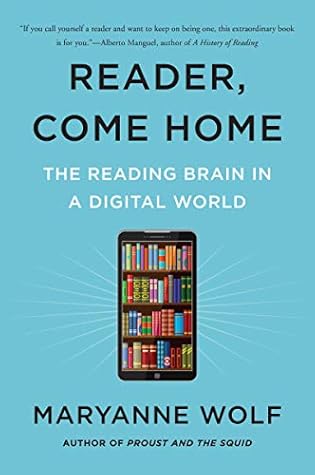More on this book
Community
Kindle Notes & Highlights
Read between
December 21, 2020 - February 22, 2021
The unnatural, cultural origin of literacy—the first deceptively simple fact about reading—means that young readers do not have a genetically based program for developing such circuits. Reading-brain circuits are shaped and developed by both natural and environmental factors, including the medium in which reading is acquired and developed. Each reading medium advantages certain cognitive processes over others. Translation: the young reader can either develop all the multiple deep-reading9 processes that are currently embodied in the fully elaborated, expert reading brain; or the novice reading
...more
there is a final moment in the reading act when an arms-wide expanse in the reader’s mind opens up and all our cognitive and affective processes become the stuff of pure attention and reflection. Cognitively and physiologically, this pause is not a quiet or static time. It is an intensely active moment that can lead us even deeper into insights from the text or beyond them, as we sift past perceptions, feelings, and thoughts in pursuit of what the psychologist William James thought of and Philip Davis described as “that invisible generative place. . . .65 the invisible presence of mind behind,
...more
each reader of this book knows what is to be found there: the inestimable thoughts that from time to time irradiate our consciousness with brief, luminous glimpses of what lies outside the boundaries of all we thought before. In such moments, deep reading provides our finest vehicle to travel outside the circumferences of our lives.


